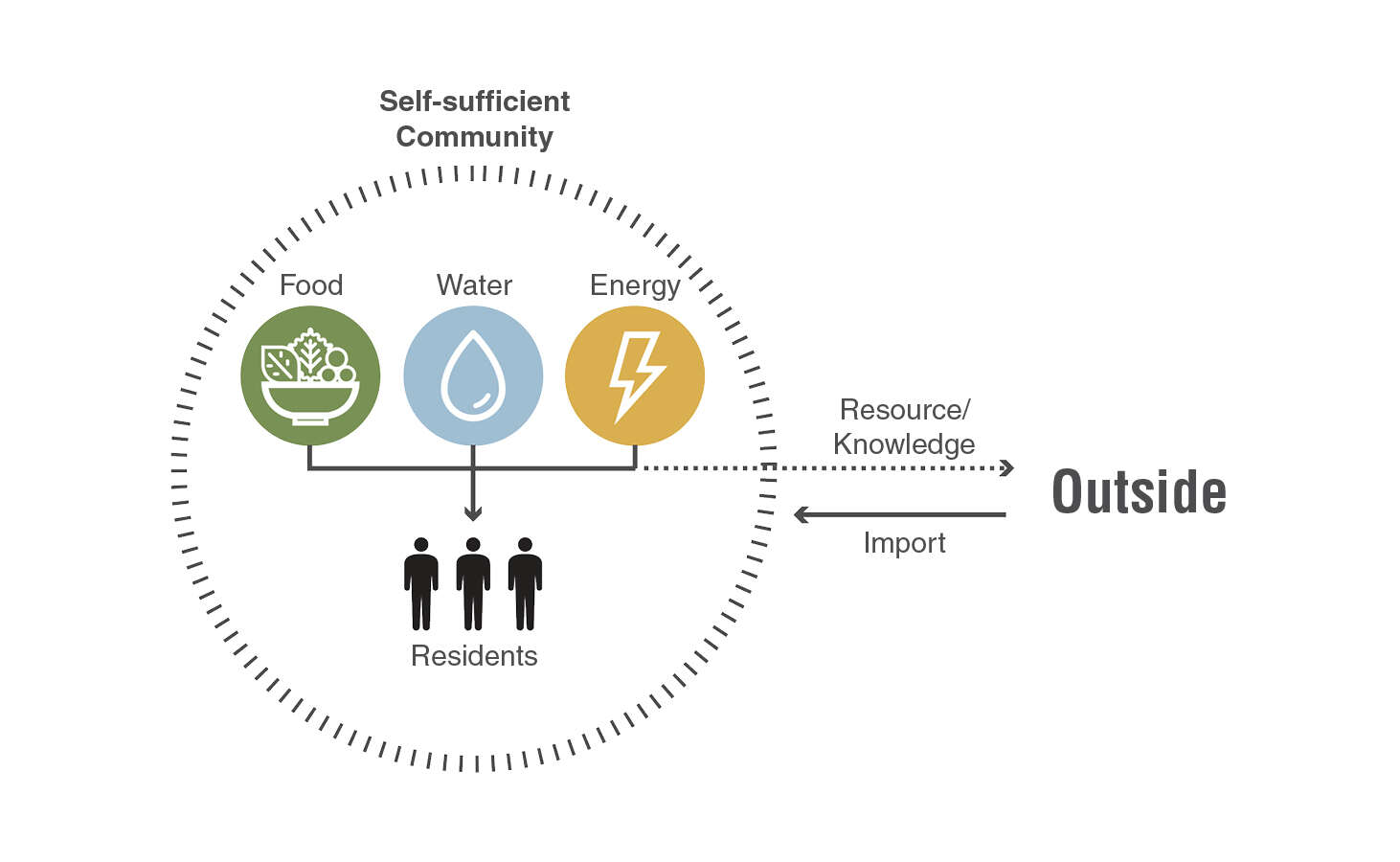Off grid living survival isn’t just about escaping the modern world; it’s about embracing a deeper connection with nature and achieving true self-sufficiency. It’s a journey demanding resourcefulness, resilience, and a profound understanding of the environment. This isn’t about rugged individualism, but rather a thoughtful approach to sustainable living, where resource management, community building, and preparedness intertwine to create a fulfilling and resilient lifestyle.
Prepare to discover the secrets to thriving beyond the grid.
This guide delves into the practical aspects of off-grid living, from procuring and managing water and food to constructing sustainable shelters and generating renewable energy. We’ll explore various strategies, compare different approaches, and offer step-by-step instructions to empower you to make informed decisions about your own off-grid journey. Whether you’re a seasoned survivalist or a curious beginner, this comprehensive resource will equip you with the knowledge and confidence to navigate the challenges and rewards of this unique lifestyle.
Health and First Aid: Off Grid Living Survival
Off-grid living demands a proactive approach to health and well-being. The absence of readily available medical care necessitates a thorough understanding of basic first aid, common health risks, and effective self-treatment strategies. Proficiency in these areas can significantly impact your safety and survival in remote environments.
Essential First-Aid Skills
Mastering fundamental first-aid skills is paramount for off-grid survival. These skills allow for immediate response to injuries and illnesses, potentially preventing serious complications before professional help can be accessed. Knowing how to properly treat wounds, stabilize fractures, and manage life-threatening situations can be the difference between a minor setback and a major crisis. This includes knowledge of wound cleaning and bandaging techniques, splinting procedures for fractures, and the recognition and management of shock.
Common Health Risks and Prevention, Off grid living survival
Off-grid environments present unique health challenges. Exposure to the elements, limited sanitation, and potential encounters with wildlife significantly increase the risk of various illnesses and injuries. Dehydration, heatstroke, hypothermia, insect-borne diseases, and cuts and abrasions are prevalent concerns. Prevention strategies include diligent hydration, appropriate clothing for varying weather conditions, insect repellent use, careful food handling to avoid food poisoning, and the practice of safe techniques while handling tools and engaging in outdoor activities.
Discover more by delving into kong survival off grid living net worth further.
Regular hygiene practices also play a crucial role in disease prevention.
Treating Common Illnesses Without Medical Facilities
Treating common illnesses without access to medical facilities requires resourcefulness and a basic understanding of herbal remedies and homeopathic treatments. For minor ailments like cuts and scrapes, thorough cleaning and appropriate bandaging are essential. For more serious conditions such as infections or severe dehydration, readily available natural remedies and alternative therapies can be utilized, but always prioritize seeking professional medical attention when possible.
Knowledge of basic herbal remedies, while not a replacement for professional medical care, can provide temporary relief and support the body’s natural healing processes. However, understanding the limitations of these treatments is crucial, and seeking professional medical attention as soon as feasible is highly recommended.
Essential Medications and Supplies for an Off-Grid Medical Kit
A well-stocked medical kit is an invaluable asset in an off-grid setting. It should contain items to address a wide range of potential health issues.
- Antiseptic wipes or solution for cleaning wounds.
- Adhesive bandages in various sizes.
- Sterile gauze pads.
- Triangular bandages for slings and support.
- Pain relievers (ibuprofen or acetaminophen).
- Antihistamines for allergic reactions.
- Anti-diarrheal medication.
- First-aid manual.
- Tweezers for removing splinters or ticks.
- Scissors.
The composition of your medical kit should be tailored to your specific needs and the anticipated risks of your environment. It’s advisable to consult with a healthcare professional to ensure your kit is adequately equipped.
Community and Social Aspects

Embracing off-grid living is a significant shift, demanding not only self-sufficiency in practical skills but also a reevaluation of social interaction. While the allure of solitude is undeniable, the reality of off-grid existence often highlights the crucial role of community in ensuring both physical and mental well-being. A strong network of support can transform challenges into opportunities and enhance the overall quality of life.The benefits and challenges of isolated living are intricately intertwined.
While the peace and quiet of a secluded environment can be profoundly restorative, the lack of readily available social interaction can lead to feelings of loneliness and isolation. Conversely, the necessity of self-reliance fosters resourcefulness and resilience, creating a sense of accomplishment and independence often lacking in urban settings. The key lies in striking a balance – harnessing the benefits of isolation while mitigating its potential drawbacks through proactive community building.
Strategies for Building and Maintaining Neighborly Relationships
Building strong relationships with neighbors is paramount for off-grid success. This involves proactive engagement, mutual respect, and a willingness to collaborate. Regular informal gatherings, such as potlucks or shared workdays, can foster a sense of camaraderie and shared purpose. Establishing clear communication channels, whether through regular meetings, a shared communication system, or simply friendly chats, helps prevent misunderstandings and promotes cooperation.
Offering assistance during times of need, whether it’s lending tools or sharing resources, strengthens bonds and cultivates a culture of mutual support. A spirit of generosity and shared responsibility are foundational elements of a thriving off-grid community.
Examples of Successful Off-Grid Communities
Several successful off-grid communities demonstrate the power of cooperation. The intentional community of Los Angeles’s “Earthships” exemplifies sustainable living practices and collaborative resource management. Residents share resources, knowledge, and skills, fostering a strong sense of collective responsibility. Their success stems from a shared vision, clearly defined roles, and a commitment to mutual support. Similarly, ecovillages around the world, such as the Findhorn Foundation in Scotland, showcase the effectiveness of community-based solutions for sustainable living, demonstrating how shared resources and collective decision-making can lead to successful and resilient communities.
These communities often employ consensus-based decision-making, promoting inclusivity and ensuring that all members feel valued and heard. Their strategies for cooperation involve regular meetings, shared responsibilities, and a commitment to resolving conflicts peacefully and constructively. The success of these communities underscores the importance of establishing clear communication channels, fostering a culture of trust, and prioritizing collective well-being.
Embarking on the path of off-grid living survival is a transformative experience, demanding both preparation and adaptability. While challenges undoubtedly exist, the rewards—self-reliance, a deeper connection with nature, and a sustainable lifestyle—are immeasurable. This guide has provided a foundation for your journey, but remember that continuous learning and practical experience are key to success. Embrace the adventure, hone your skills, and build a life that is both resilient and fulfilling, far beyond the constraints of the conventional grid.
FAQ Guide
What are the biggest challenges of off-grid living?
The biggest challenges often include securing reliable water sources, managing waste effectively, maintaining consistent food production, and dealing with potential health issues without easy access to medical care. Social isolation and the financial investment required are also significant considerations.
How much land do I need for off-grid living?
The amount of land needed depends on your lifestyle and self-sufficiency goals. A minimum of a few acres is usually recommended to support food production, water collection, and waste management, but larger properties offer greater flexibility and resource options.
Is off-grid living legal everywhere?
Regulations vary significantly by location. Building codes, zoning laws, and environmental regulations can impact the legality and feasibility of off-grid living in different areas. It’s crucial to research local laws and obtain necessary permits before starting any construction or development.
Can I completely disconnect from the grid?
While complete disconnection is possible, it’s often challenging and may require significant investment in renewable energy systems and backup solutions. Many off-grid dwellers maintain limited grid connections for essential services like communication or occasional access to electricity.


